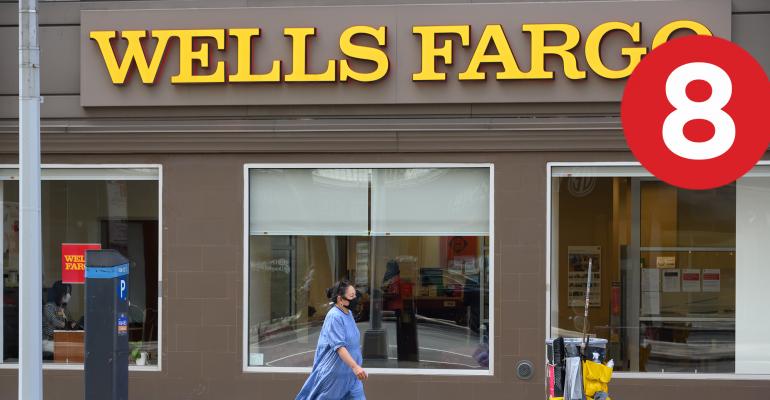- Wells Fargo Plans to Bring Employees Back to the Office in September “Wells Fargo & Co. plans to start bringing employees back to the office after Labor Day, citing the increasing availability of vaccines. The bank, which has been telling employees each month that they should keep working from home for another month, now hopes that operations will begin to return to normal after Sept. 6, according to a memo circulated to staffers Tuesday afternoon.” (Wall Street Journal)
- Google Is Accelerating Partial Reopening of Offices and Putting Limits on Future of Remote Work “If employees want to work remotely after Sept. 1, for more than 14 days per year, they’ll have to formally apply for it, according to a separate note marked ‘Need to know.’ They can apply for up to 12 months in ‘the most exceptional circumstances.’ The company could, however, call employees back to their assigned office at any point, the note said.” (CNBC)
- Remote Work Is Overrated. American Supercities Are Coming Back. “Moretti is an economist and preeminent researcher in the fields of labor and urban economics at the University of California Berkeley. His 2013 book The New Geography of Jobs details the forces shaping where people live, where people work, and how those outcomes are inextricably linked. In this interview, Moretti explains why high-productivity workers cluster in a handful of cities and why the strength of those forces means it’s unlikely that very many of us will be working fully remotely in the long run.” (Vox)
- If American Dream Is Retail’s Future, Why Does its Owner Wish It Had Burned Down? “Owners don’t typically tell a public audience that they wish their sparkling new $5 billion shopping center had burned to the ground. But then you’d need a heart of stone not to empathize with the sentiment behind Kurt Hagen’s startling words when he addressed local council leaders last month. The American Dream mega-mall, tipped as the future of retail in America, is in danger of costing owner Triple Five Group dear, as its New Jersey complex rapidly descends into the stuff of nightmares.” (Forbes)
- Vacation Home Buyers Propped Up the Mortgage Market. Now They Face a Test “The pandemic set in motion a furious scramble to buy vacation homes. Now, curbs on financing those purchases will test that market’s resilience. The number of buyers who locked in mortgage rates for second homes in February was up 93% from a year earlier, far outpacing the 32% climb for primary residences, according to real-estate brokerage Redfin Corp.” (Wall Street Journal)
- NYC Hotels Expect More Guests as State Lifts Quarantine for Domestic Travelers “New York City’s battered hotel industry hopes more visitors will return starting April 1st, when domestic travelers no longer have to quarantine after entering New York from another state or territory. The state’s quarantine policies started last June, when Gov. Andrew Cuomo required visitors from states with high rates of COVID-19 positivity tests to isolate for 14 days upon arrival. The quarantine period expiring on April 1st is only three days long.” (Gothamist)
- Macerich’s Sale of Phoenix Mall Offers a Hint of What’s to Come for Dying Malls: Rezoning and New Uses “The future of the suburban shopping mall could look something like a mini community, with far fewer places to shop. The U.S. mall owner Macerich announced Thursday it’s sold a majority stake in Paradise Valley Mall in Phoenix, for $100 million, to a joint venture with an affiliate of the Phoenix-based, mixed-use real estate company RED Development. The partners will convert the 92-acre site into a community with homes, offices and a grocery store.” (CNBC)
- Turning Away from Nursing Homes, to What? “A major shortage of age-friendly housing in the United States will present problems for seniors who wish to stay in their homes. By 2034, 34 percent of households will be headed by someone over 65, a jump from 26 percent in 2018, according to the Harvard center, and the share of households age 80 and over will grow even more rapidly. Yet in 2011, just 3.5 percent of homes had single-floor living, no-step entry and extra-wide halls and doors for wheelchair access, according to Harvard’s latest estimates.” (The New York Times)
0 comments
Hide comments





